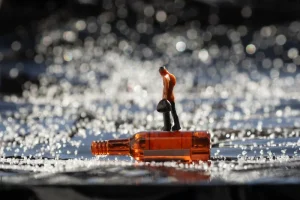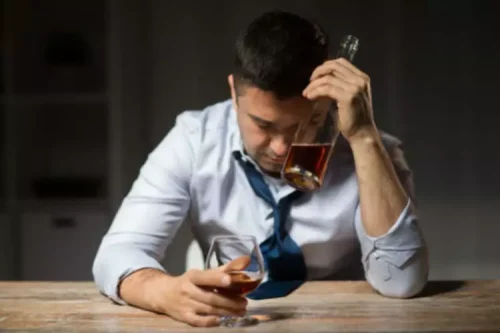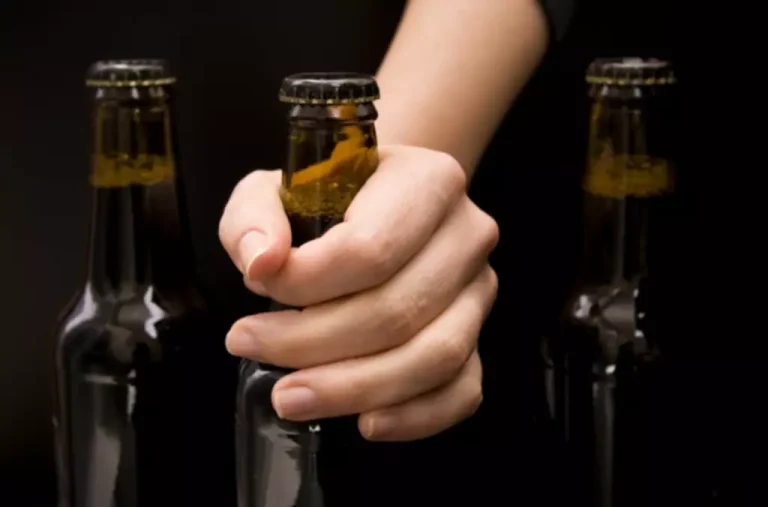
Breathing problems — Since alcohol’s sedative effect extends to your entire body, including your muscles, it may allow your airway to close more easily while you’re asleep. This can greatly increase the risk of sleep apnea especially if you drink within the last couple of hours before bedtime. One study found if you drink alcohol during a natural dip in energy (like your afternoon slump), your urge to sleep may override https://ecosoberhouse.com/ the stimulating effects of alcohol. If you drink when your energy is naturally rising (like in the early evening), alcohol may be more stimulating and increase how long it takes to fall asleep. Drinking before bed is also linked with more slow-wave sleep patterns called delta activity, but alpha activity, which indicates wakefulness with eyes closed and often precedes sleep, is turned on at the same time.
The Role of Alcohol in REM Sleep
People with insomnia have an increased risk of developing alcohol use disorder, potentially because many individuals turn to alcohol as a sleep aid. Alcoholic beverages can cause bloating for various reasons, including the type of drink, carbonation, its ingredients, and anything added to it. Although it may not be possible to avoid bloating and other symptoms after drinking, avoiding drinks that can cause bloating and cutting back on drinking may help.
- On the contrary, as alcohol passes through the body, it exerts a number of biochemical effects that tend to lead to poorer sleep.
- The effects of alcohol in the body are what are known as biphasic, meaning “in two phases.” When first consumed, alcohol has a stimulating effect.
- One of the side effects of alcohol is drowsiness, so it can make you fall asleep quickly.
Drinking water won’t cure your hangover, new research finds
- Drinking more alcohol can lead to more tolerance and sleep problems, as well as alcohol dependency and health issues.
- But as this new research indicates, the effects of alcohol—particularly the stimulating effects—are magnified during certain periods of the body’s 24-hour circadian cycle.
Sleep specialists include respiratory physicians who are medically trained to deal with sleep breathing disorders, and sleep psychologists who can help with insomnia. It turns out a large proportion of people have both conditions, something called COMISA. Each day you are given an elevated or not elevated assessment for your breathing disturbances for the night before.
Review your breathing disturbances data
Occasionally consuming a small amount of alcohol in the evening to help you relax and wind down isn’t a problem. By contrast, a small sherry or a nip of whisky before bed has never done anyone any harm and it can often be the perfect end to a lovely evening. Here at Sleep Advisor, our editorial team utilizes does alcohol help you sleep reputable sources and expert feedback to provide well-researched sleep health content. We use your questions to help us decide topics for articles, videos, and newsletters. Please note, we cannot provide specific medical advice, and always recommend you contact your doctor for any medical matters.
The transition from risky behaviours to bad habits and ultimately addiction is worryingly common. One contributory factor could be the effect of poor sleep on neurocognitive functioning. Using alcohol to help you relax and sleep may actually be masking a sleep disorder that needs treatment. It’s also worth remembering that alcohol isn’t solely responsible for disrupted sleep. Combine alcohol with a fatty kebab or a late-night curry and your body has its work cut out keeping you cool and keeping you asleep.
Circadian Rhythm Fasting

When a person is diagnosed with sleep apnea, it means that they have short and frequent breathing cessations during the night. These cessations force the body to partially rouse itself over and over again in order to restore proper breathing, preventing sufferers from getting the deep, restful sleep they need. The most common type of sleep apnea is obstructive sleep apnea (OSA), and it occurs when the tissues in the mouth and throat relax and block the airway during sleep. Alcohol consumption significantly alters the normal progression through sleep stages, disrupting the natural sleep architecture. In the early part of the night, alcohol tends to increase deep sleep (N3 stage) while reducing REM sleep. This might initially feel like more restful sleep, but it’s actually a disruption of the natural sleep cycle.
If over a 30 day period, you receive more frequent elevated breathing disturbances, you will receive a notification of possible sleep apnea. This alert will tell you when potential sleep apnea occurred and give you access to a PDF to discuss with your healthcare provider. The Military Sleep Method is simply a new way of marketing certain well-documented relaxation methods, and it may very well work, though the promise of two minutes is not particularly realistic. It’s certainly worth trying — though don’t forget the importance of good sleep hygiene, which includes keeping your bedroom dark, quiet, and cool, and avoiding caffeine, alcohol, and screens before bed. It can put your body in a state of relaxation and bring a sense of calm, if not necessarily instant sleep, in two minutes.

Alcohol Doesn’t Help Your Sleep
You may also have a hangover to contend with the next morning or the entire following day. Research shows the more alcohol-related sleep disruption you have, the worse your hangover can be. Some research shows alcohol can make you feel sleepy soon after consumption and this may be due to eating a meal at the same time. Alcohol can also dehydrate you, and even mild dehydration can cause fatigue.


So it’s easy to understand why young people can become locked into a repetitive cycle of sleep deprivation, alcohol dependence, risky behaviour and addiction. Other, generalised sedative effects Alcohol can increase the sedative effects of medications that you may be taking for other conditions. This is why you’ll often see a warning label on these medications advising you to avoid alcohol. Large doses of alcohol produce stupefied and comatose sleep as a primary symptom and sleeplessness as a secondary symptom.



